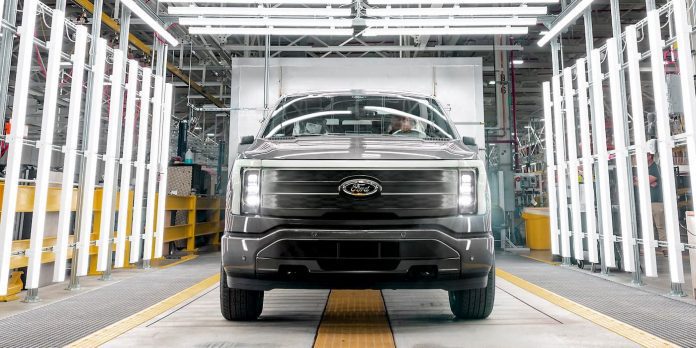Ford has secured one of largest automotive industry subsidies in U.S. history to boost electric vehicle production, part of the Biden Administration’s efforts to compete with Chinese manufacturing.
The Department of Energy’s Loan Programs Office (LPO) awarded the $9.2 billion conditional loan to Ford on Thursday morning, June 22. BlueOval SK, the automaker’s joint-venture subsidiary formed with South Korean tech manufacturer SK On, will use the subsidy to build three new electric vehicle battery plants located in Kentucky and Tennessee. Robert Rhee, BlueOval CEO, said the plants would create 7,500 jobs in the U.S.
The decision to award the $9.3 billion to Ford comes just days after company chairman Bill Ford Jr. said the U.S. was not prepared to compete with China in the electric vehicle space. The Biden Administration’s green energy investments, in part, are intended to reduce American dependency on foreign, primarily Chinese, components and materials. Under Biden the LPO has received greater lending power and distributed roughly $20.63 billion to companies for a variety of sustainable infrastructure and transportation projects. The $9.3 billion subsidy given to Ford is the office’s largest to date.
Ford’s electric vehicle business is progressing but remains constrained by high production costs, non-existent supply chains and minimal demand. Struggles in the space are not endemic to the BlueOval brand, as nearly all car manufacturers, even those exclusively focused on battery-powered products, have yet to break even, much less profit, from the segment. The one exception is Tesla, whose models have recently become top sellers across the automotive industry despite the market’s small size. Government subsidies could be the key to helping legacy automakers and newcomers become competitive. Tesla itself is the recipient of government funds as well, receiving $465 million in 2010, also awarded by the LPO.




